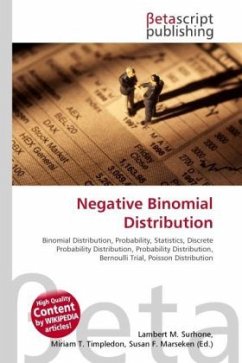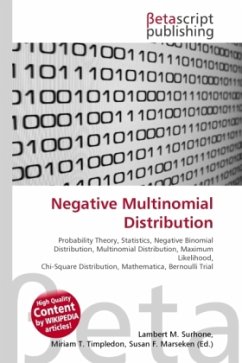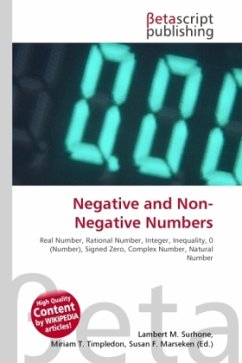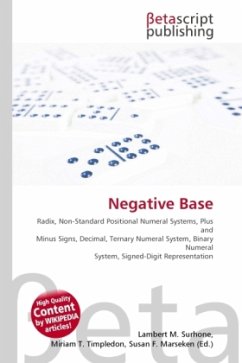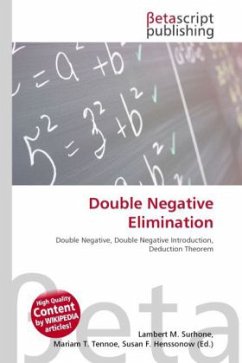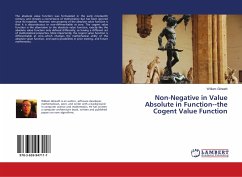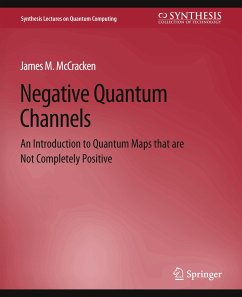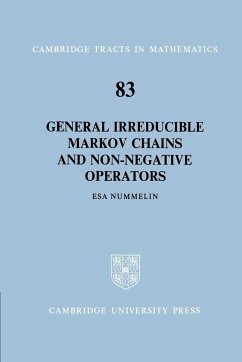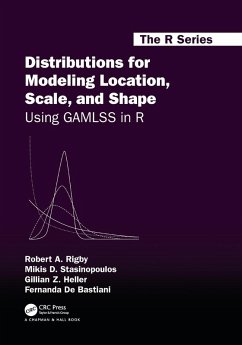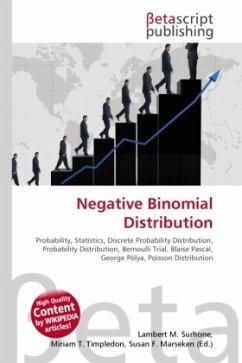
Negative Binomial Distribution
Versandkostenfrei!
Versandfertig in 6-10 Tagen
30,99 €
inkl. MwSt.

PAYBACK Punkte
15 °P sammeln!
High Quality Content by WIKIPEDIA articles! In probability and statistics the negative binomial distribution (including the Pascal distribution or Polya distribution) is a discrete probability distribution. It arises as the probability distribution of the number of failures in a sequence of Bernoulli trials needed to get a specified (non-random) number of successes. If one throws a die repeatedly until the third time a "1" appears, then the probability distribution of the number of non-"1"s that appear before the third "1" is a negative binomial distribution. The Pascal distribution and Polya ...
High Quality Content by WIKIPEDIA articles! In probability and statistics the negative binomial distribution (including the Pascal distribution or Polya distribution) is a discrete probability distribution. It arises as the probability distribution of the number of failures in a sequence of Bernoulli trials needed to get a specified (non-random) number of successes. If one throws a die repeatedly until the third time a "1" appears, then the probability distribution of the number of non-"1"s that appear before the third "1" is a negative binomial distribution. The Pascal distribution and Polya distribution are special cases of the negative binomial. There is a convention among engineers, climatologists, and others to reserve "negative binomial" in a strict sense or "Pascal" (after Blaise Pascal) for the case of an integer-valued parameter r, to the right, and use "Polya" (for George Pólya) for the real-valued case. The Polya distribution more accurately models occurrences of "contagious" discrete events, like tornado outbreaks, than does the Poisson distribution.



